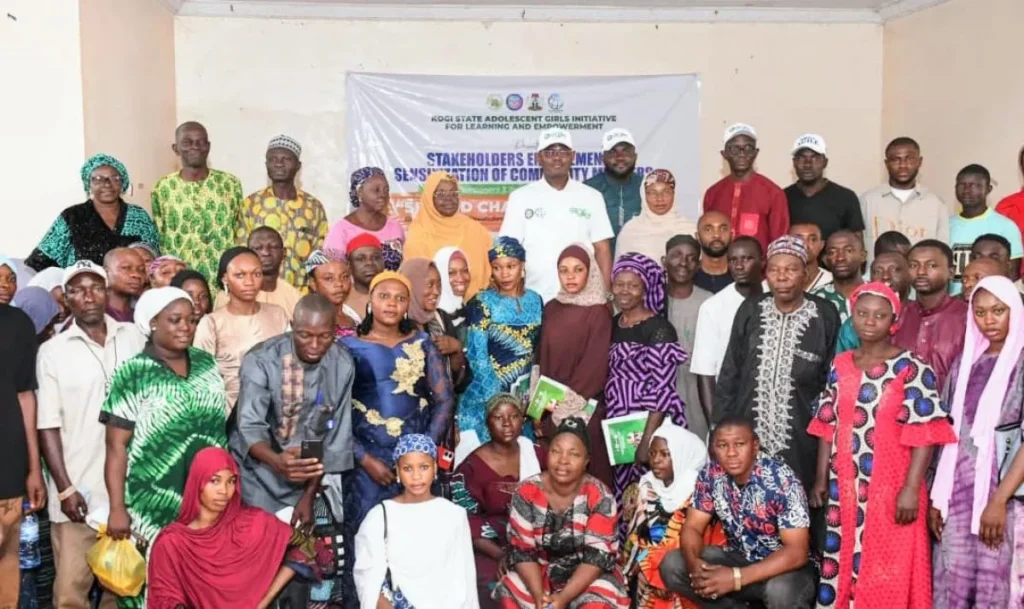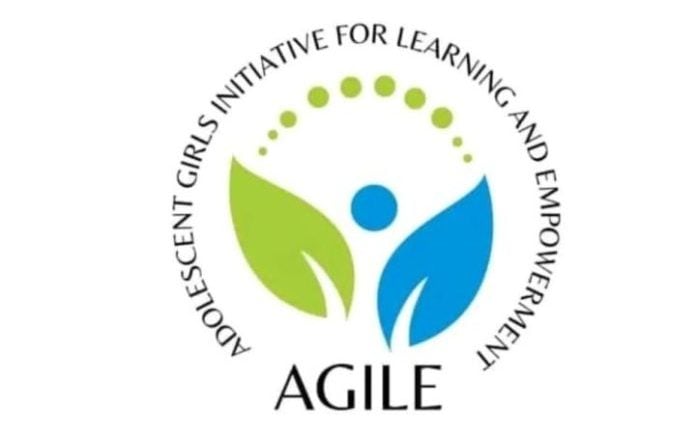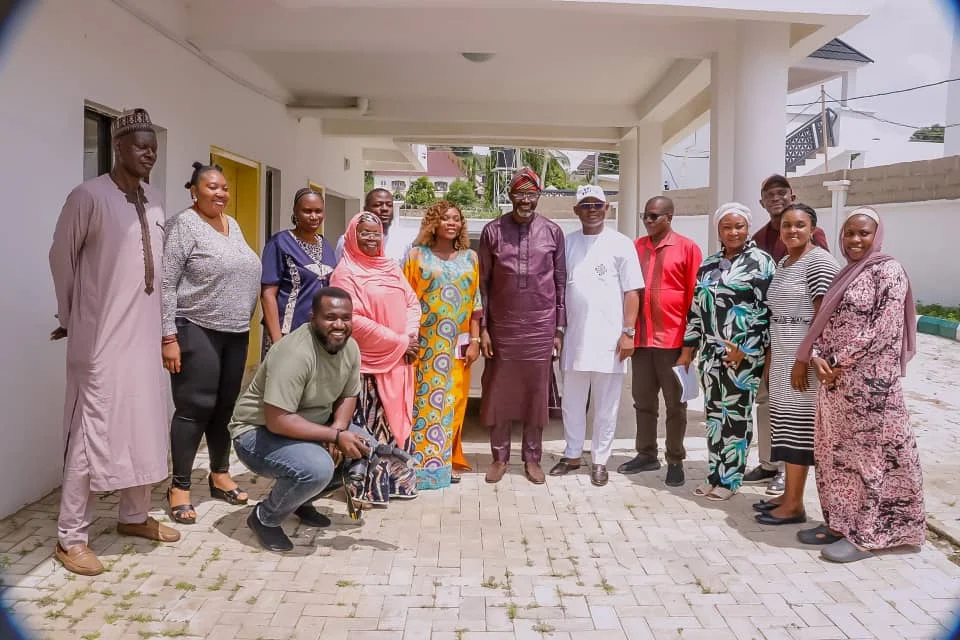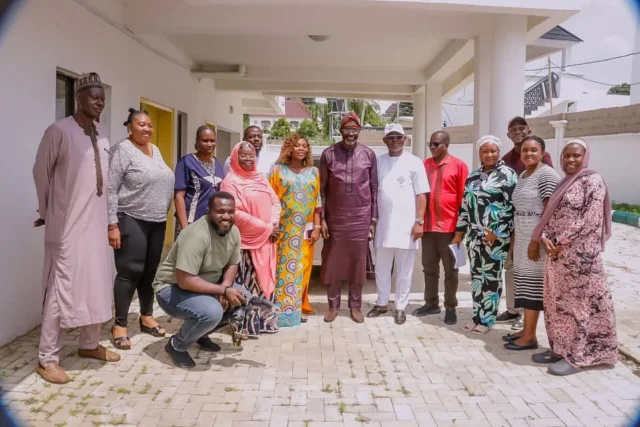On Saturday, 6 September 2025, Anyigba town in Kogi State witnessed the unveiling of an initiative that could reshape the future of thousands of girls. The Adolescent Girls Initiative for Learning and Empowerment (AGILE), a World Bank–supported project running in Kogi, launched the Second Chance Education Programme.
This programme is built on a simple but powerful idea: no girl should be denied education because of poverty, early marriage, or life’s misfortunes. It is designed to bring back adolescent girls who dropped out of school and place them on a path of literacy, skills, and self-reliance.
Speaking at the launch, Ahmed Tijjani Oricha, Kogi State AGILE Project Coordinator, said the project is more than just classrooms and lessons. It is about dignity, opportunity, and hope. “We cannot afford to waste the potential of our daughters,” he noted. “This Second Chance Education is their bridge back to learning and their right to a brighter tomorrow.”

Table of Contents
What the Programme Offers
The Second Chance Education model is not just a copy of formal schooling. Instead, it is adapted to the real needs of adolescent girls who have already left the system.
At its core, it offers:
- Basic literacy and numeracy to build confidence in reading, writing, and calculation.
- Life skills training, including decision-making, leadership, and financial literacy.
- Vocational skills such as tailoring, catering, ICT, and other trades to prepare girls for self-employment.
- Health and well-being education, ensuring girls have accurate knowledge about their bodies, nutrition, and rights.
Learning centres will be free, flexible, and community-based, making it easier for girls—many of whom may be married or working—to participate without shame or stigma.
Importantly, AGILE has involved community stakeholders right from the beginning. Religious leaders, traditional rulers, women leaders, parents, and youth groups have all been sensitised. Mr Oricha explained that this was deliberate: “Programmes like this only succeed when the community owns it. We are building support systems, not just schools.”
Stories That Inspire
Among the most moving moments of the launch came from Hajia Mariam Bello, AGILE’s Component Lead for Second Chance Education. She shared her personal journey of overcoming setbacks to complete her schooling. Her story of persistence in the face of barriers resonated with the audience, especially the young girls present.
“It is never too late to learn,” she told them. “I stand here as living proof that education can be delayed but not denied.”
Her words echoed the programme’s spirit—that resilience and determination, when matched with opportunity, can change a girl’s life forever.
Other AGILE leaders also spoke. Michael Olatunde, Environmental Lead, highlighted how the centres would be safe and sustainable. Bishop Aturu, Communication Specialist, stressed the role of storytelling and awareness campaigns in ensuring parents and guardians release their daughters to benefit from the programme.
The commitment did not stop with AGILE officials. Tsebeje Jonathan, Executive Director of the Agency for Non-Formal Education, pledged institutional collaboration, while Ogohi Abu Okolo, the traditional ruler of Anyigba, promised to rally local leaders behind the initiative. Their voices reinforced one truth: this programme has broad backing and is here to stay.

Why It Matters
Across Nigeria, statistics paint a sobering picture. Millions of school-age girls are out of the classroom. In Kogi State, economic hardship, early marriage, cultural barriers, and insecurity have all contributed to rising dropout rates. For many families, especially in rural areas, a daughter’s education is sacrificed first when money or time is scarce.
The Kogi AGILE Second Chance Education initiative responds directly to this crisis. By offering flexible, community-friendly learning, it reduces the barriers that forced girls out of school in the first place. The benefits are not just individual but societal:
- For families, educated girls are more likely to earn income, support siblings, and delay early marriage.
- For communities, literacy leads to healthier households, lower poverty levels, and stronger participation in civic life.
- For the state, empowering girls boosts human capital, one of the strongest predictors of long-term development.
As Governor Ahmed Usman Ododo has repeatedly emphasised, no state can prosper while half its population is left behind. At the launch, AGILE leaders praised the governor’s support for girls’ education, describing it as “the foundation for Kogi’s brighter future.”
A Lifeline with Ripple Effects
The launch was not just an official ceremony—it was a reminder of what education represents in Nigeria today: a lifeline. For the girls who will enter these centres, this is more than learning to read or write; it is a chance to rewrite their destinies.
Stakeholders called the programme a “revolution in slow motion.” Unlike dramatic government projects, its success will be measured in quiet victories—one girl at a time, one family at a time, one community at a time.
If successful, Kogi’s model could become a blueprint for other states. With Nigeria’s out-of-school children crisis—especially among girls—standing as one of the world’s largest, the need for replicable solutions has never been more urgent.

Conclusion
The Kogi AGILE Second Chance Education initiative has landed at the right moment. It is ambitious yet practical, bold yet rooted in community values. By combining academic recovery with vocational and life skills, it recognises the realities of girls’ lives while offering them the tools to thrive.
As Hajia Bello reminded the crowd, “Education is the strongest inheritance we can give a girl.”
In every learning centre that opens, in every girl who learns to sign her name, calculate her earnings, or read to her child, this inheritance will be passed on. The ripple effect will spread—from households to communities, from today’s generation to the next.
This is more than a second chance. It is a new beginning.
Join Our Social Media Channels:
WhatsApp: NaijaEyes
Facebook: NaijaEyes
Twitter: NaijaEyes
Instagram: NaijaEyes
TikTok: NaijaEyes
READ THE LATEST EDUCATION NEWS













![Heartwarming Moment: Priscilla Ojo and Son Rakeem Reunite with Juma Jux in Tanzania [VIDEO] Priscilla Ojo](https://naijaeyesblog.com/wp-content/uploads/2025/09/Reunited-Priscilla-Ojo-says-as-she-celebrates-son-Rakeem-one-month-Kemi-Filani-blog-min-768x512-1-1-180x135.avif)


























